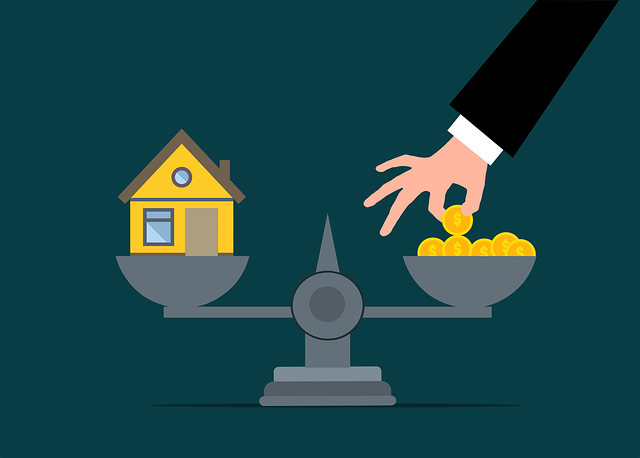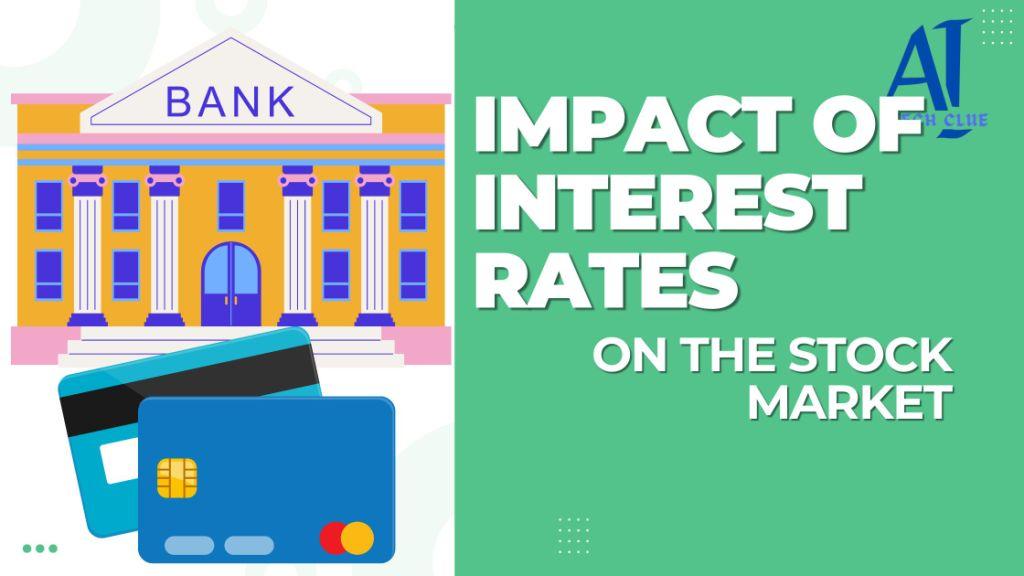Interest rates play a significant role in the overall health of the economy, and their fluctuations can have major effects on the stock market. Investors keep a close eye on changes in interest rates because they directly influence market trends, corporate profits, and investor sentiment. In this article, we’ll explore how interest rates impact the stock market, examine various scenarios of rising and falling rates, and provide insights into how investors can adjust their strategies to navigate these changes.
If you want to read same article in hindi click here
What Are Interest Rates?
Interest rates are the cost of borrowing money or the return on investment for lending money. Central banks, such as the Federal Reserve in the U.S., set the benchmark interest rates that influence rates across the economy. These rates affect everything from mortgage rates to corporate borrowing costs.
Central banks adjust interest rates to either stimulate economic growth or cool down inflation. When the economy is sluggish, central banks typically lower rates to encourage borrowing and spending. On the other hand, when inflation is rising too fast, they increase rates to slow down consumer spending and investment.
The Relationship Between Interest Rates and the Economy
Interest rates have a ripple effect on the economy. When rates are low, borrowing becomes cheaper, leading to increased consumer spending and business investments. This can spur economic growth. Conversely, higher interest rates make borrowing more expensive, reducing spending and slowing down growth.
Consumer Spending and Borrowing
When interest rates are low, consumers are more likely to take out loans for large purchases like homes or cars. They also have more disposable income due to lower debt payments. This boost in spending helps drive economic growth, which can push stock prices higher.
Corporate Investments
Businesses often rely on loans to fund expansion, research, and development. When interest rates rise, the cost of borrowing increases, making it more expensive for companies to finance growth projects. This can reduce future earnings and lead to lower stock prices.
How Interest Rate Changes Influence the Stock Market
Investors closely monitor interest rate decisions because changes can have a profound impact on the stock market. A rise or fall in interest rates can alter investor behavior, company earnings, and the overall market outlook.
Direct Effects on Stock Prices
When interest rates rise, borrowing costs for companies increase. This leads to lower profit margins, which can reduce a company’s stock value. Conversely, when rates fall, companies can borrow at lower costs, boosting their earnings and, in turn, stock prices.
Indirect Effects on Stock Prices
Higher interest rates can also reduce investor demand for stocks. Investors might move their money into safer assets like bonds, which offer more attractive yields when rates are high. This shift in investment preferences can lead to a decline in stock prices.
Impact on Different Sectors

Interest Rate-Sensitive Industries
Certain industries, such as real estate and financials, are more sensitive to interest rate changes. Real estate companies rely on borrowing for development projects, so higher rates increase their costs. Similarly, financial companies, especially banks, benefit from higher rates since they can charge more for loans.
Growth vs. Value Stocks
Growth stocks, which are often technology companies, tend to be more negatively affected by rising interest rates. These companies typically rely on borrowing to fuel their rapid expansion, making them more vulnerable to increased costs. On the other hand, value stocks, which have stable earnings and pay dividends, tend to perform better in a rising rate environment.
Rising Interest Rates and the Stock Market
What Happens When Interest Rates Increase?
When central banks raise interest rates, borrowing costs for businesses and consumers rise. This can slow economic growth and reduce consumer spending. As a result, corporate profits may decline, and stock prices can fall.
Investor Behavior in a Rising Rate Environment
Investors may shift their money into fixed-income assets like bonds when interest rates rise, as they offer higher returns with less risk. This reallocation can lead to lower demand for stocks, further pushing prices down.
Case Study: Stock Market Reaction to Interest Rate Hikes
Historically, stock markets often react negatively to interest rate hikes. For example, when the Federal Reserve raised rates multiple times between 2016 and 2018, the stock market experienced periods of volatility. While the hikes were aimed at controlling inflation, they also led to a slowdown in corporate earnings growth, causing investors to be cautious.
Falling Interest Rates and the Stock Market
How Low Interest Rates Stimulate Economic Activity
When interest rates fall, borrowing becomes cheaper, encouraging businesses to invest in growth and consumers to spend more. This increased economic activity can drive stock prices higher as companies generate higher profits.
The Impact of Near-Zero Interest Rates
In times of economic crisis, such as the 2008 financial meltdown or the COVID-19 pandemic, central banks often reduce interest rates to near-zero levels. These ultra-low rates stimulate borrowing and spending, helping the stock market recover from steep declines.
Case Study: Stock Market Reaction to Falling Interest Rates
In 2008, following the global financial crisis, the Federal Reserve cut interest rates dramatically to boost the economy. This move led to a significant stock market rally over the following years. Similarly, when interest rates were lowered again during the COVID-19 pandemic, stock prices soared as investors sought high returns in a low-rate environment.
The Role of Inflation in Interest Rate Changes
Inflation is a key factor that central banks consider when adjusting interest rates. If inflation is rising too quickly, central banks may increase rates to cool off the economy and bring inflation under control. However, this can also lead to a slowdown in stock market performance, as companies face higher costs and reduced consumer spending.
Short-Term vs. Long-Term Interest Rate Impacts on Stocks
Short-Term Reactions
Stock markets often react immediately to interest rate announcements. A surprise rate hike or cut can lead to sudden price swings as investors adjust their expectations.
Long-Term Trends
Over the long term, interest rates influence broader market trends. Consistently low rates can fuel bull markets, while a series of rate hikes may signal the end of a bull market and the beginning of a bear market.
Global Interest Rates and Their Impact on International Stock Markets
Interest rate changes in one country, especially the U.S., can have a ripple effect on global markets. When U.S. rates rise, international investors may pull money out of emerging markets and invest in U.S. assets, causing stock prices in those regions to fall.
How Investors Can Prepare for Interest Rate Changes
1. Diversifying Your Portfolio
Investors can prepare for interest rate changes by diversifying their portfolios. Including bonds, dividend-paying stocks
, and defensive sectors like utilities can help mitigate the impact of rising rates.
2. Adjusting Strategies for Rising or Falling Rates
In a rising rate environment, investors may want to focus on value stocks and sectors that benefit from higher rates, such as financials. Conversely, in a low-rate environment, growth stocks and companies that rely on cheap borrowing for expansion may perform better.
Conclusion
Interest rates are a critical factor in determining stock market performance. Whether rates are rising or falling, they influence corporate profits, investor behavior, and overall market trends. By understanding how interest rates affect the stock market, investors can make more informed decisions and adjust their strategies accordingly.
How to Use Market Sentiment Indicators in Stock Trading
FAQs
1. Why do higher interest rates cause stocks to fall?
Higher interest rates increase borrowing costs for companies, leading to lower profits and, in turn, lower stock prices.
2. How do low interest rates affect stock market bubbles?
Low interest rates can encourage excessive risk-taking, leading to inflated stock prices and market bubbles.
3. Can the stock market thrive in a high-interest rate environment?
Yes, certain sectors like financials can benefit from higher interest rates, although overall market growth may slow.
4. Should investors avoid stocks when interest rates rise?
Not necessarily. Investors can focus on value stocks and defensive sectors that perform well in rising rate environments.
5. How often do central banks change interest rates?
Central banks typically review interest rates periodically, adjusting them based on economic conditions, inflation, and growth trends.


1 thought on “The Impact of Interest Rates on the Stock Market”